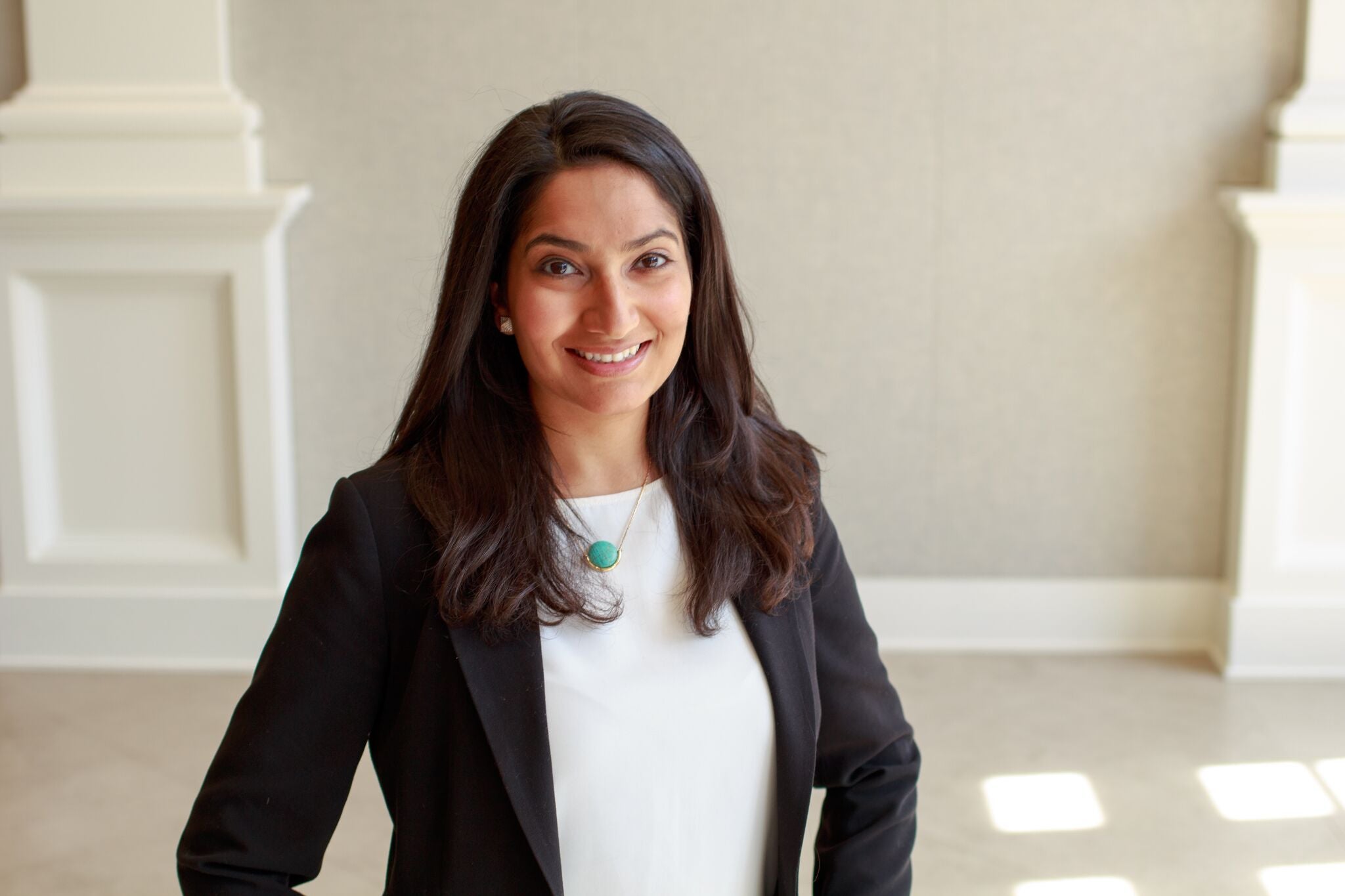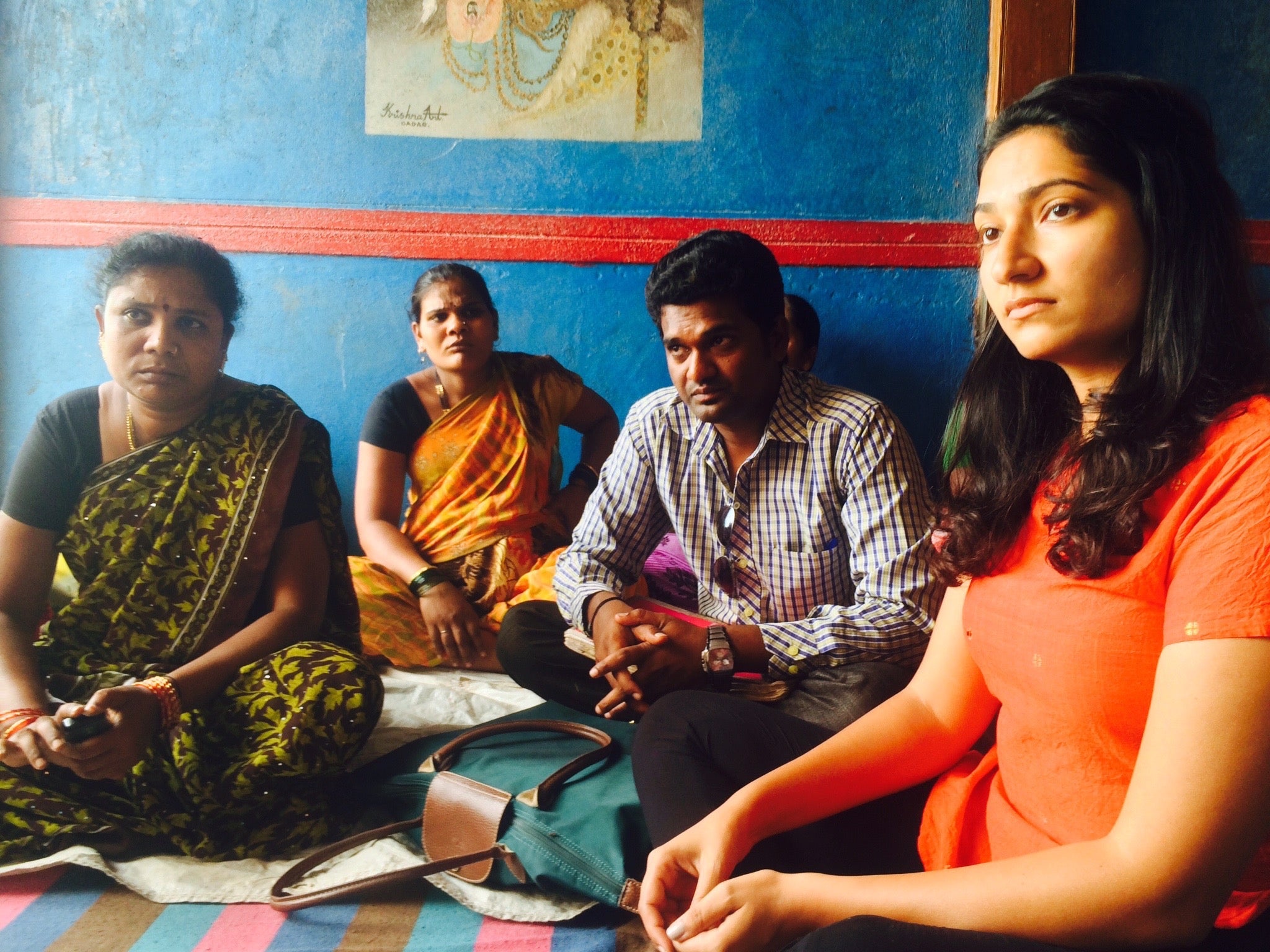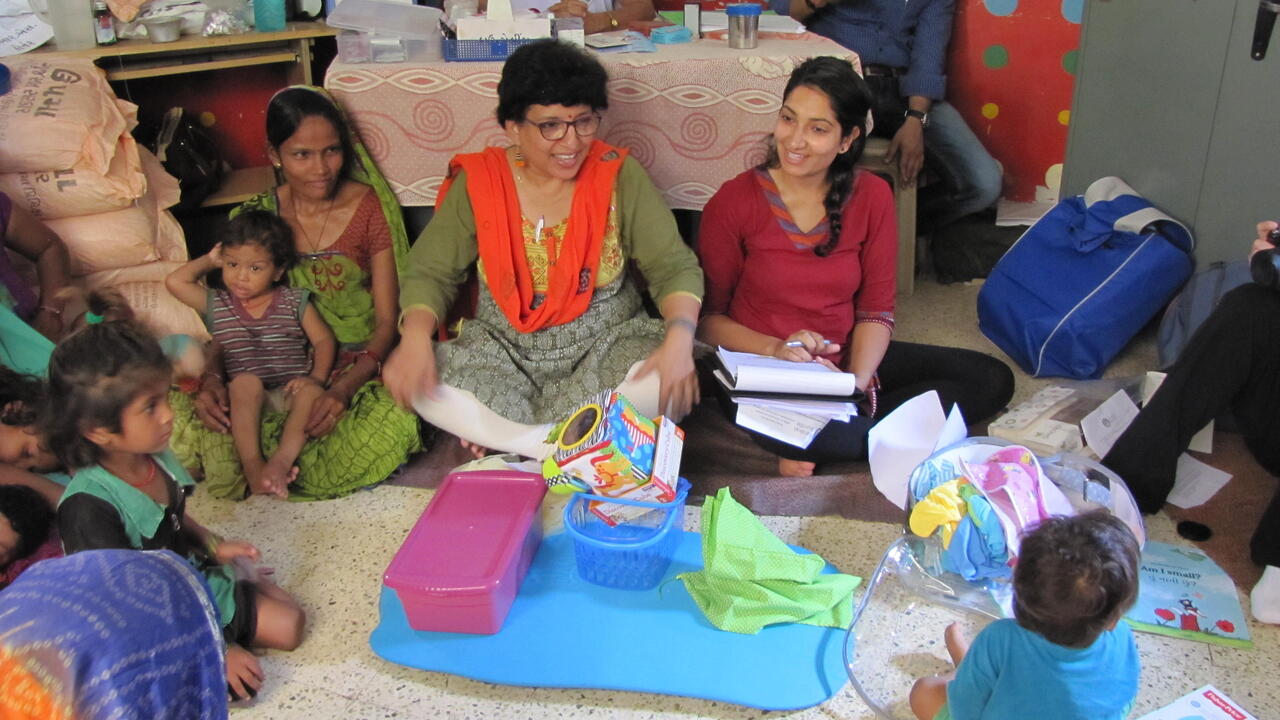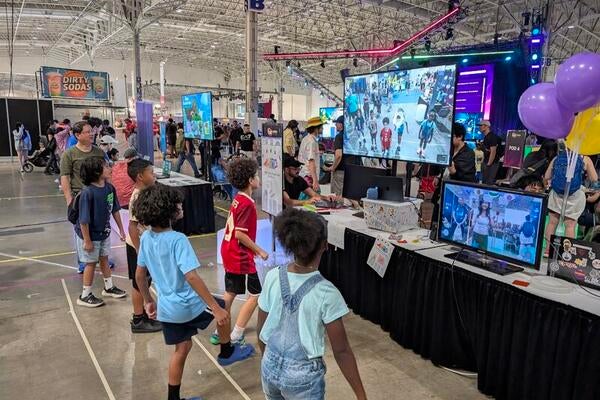Karima Ladhani (BMath ’10) began her journey in the public service and health sector as a volunteer at various institutions devoted to improving public health outcomes while an undergrad at Waterloo.
Driven by interdisciplinary approaches to health, and a commitment to helping mothers and children, she founded Barakat Bundle a curated bundle of life-saving solutions and health education to support mothers and their newborns and prevent infant and maternal mortality in South Asia.

Karima also holds research positions with Brigham and Women’s Hospitals Department of Newborn Medicine and the Harvard Ministerial Leadership in Health Forum and has over 7 years of global experience with work in India, China, Bangladesh, Kenya, Tajikistan, and Pakistan, focusing on strengthening health systems, education, and maternal and child health.
Alumni Relations had the opportunity to catch up with Karima and ask her more about Barakat Bundle and life after Waterloo.
You recently received your Doctor of Science degree in Global Health at the Harvard T. H. Chan School of Public Health. Can you tell us about starting your education in Math and now completing your Doctor of Science at Harvard?
I started in the math and business double degree program at Waterloo and Laurier with intentions of a career in finance. Along the way, the co-op program gave me the opportunity to try out different jobs within the world of finance and narrow down my areas of interest. My aim was to get on to the trading floor and when I finally got a co-op job there, I realized relatively quickly that it was not sufficiently motivating for me in the long term.
After graduating, I emailed every professor I could at the University of Waterloo that was doing anything in the applied science/medicine field to see if they would take me on as a research assistant. One replied – Dr. Geoffrey Fong with the International Tobacco Control Policy Evaluation Project (ITC). So upon graduation, while most of my peers went on to high paying jobs in finance, I stayed back in Waterloo to become a research assistant for Dr. Fong and that experience working in his lab truly changed the trajectory of my education and career path from finance to public health.
When did you know that your aspirations were in the public health sector, more specifically in helping women and children in South Asia?
Working in Dr. Fong’s lab was the first time I was exposed to the world of public health. I had previously limited my exploration of careers in science exclusively to medicine but at the ITC Project, I learned what public health was, its potential impact on the world, and the underlying motivation it provided me in my day to day work. Knowing that, I embarked on a journey to explore the field of public health from tobacco control at the ITC Project to youth substance abuse with the Region of Waterloo. I used this time to better understand the field of public health and to decide on appropriate next steps for me to pursue this field as a career. I left the ITC Project to begin my Masters in global health at Harvard where I was able to build on my applied exploration in an academic setting. It was during this two year program that I learned about epidemiology, socioeconomic determinants of health, health policy management, and more. Maternal and child health quickly emerged to me as an area of particular interest and motivation, primarily because many of the maternal and child health challenges that are faced in developing countries have already been solved in other parts of the world. These challenges are rooted in injustice, which to me felt like a calling. South Asia is of particular importance because the absolute numbers of preventable infant and maternal deaths in that region are higher than anywhere else in the world because of the sheer size of the population.

Can you tell us more about Barakat Bundle and what led you to found this social enterprise?
In January 2015, I read a BBC article about the Finnish Baby Box, a baby box of newborn essentials that doubles as a sleep space and is distributed by the Finnish government. Distributing baby boxes, conditional on prenatal care, was a simple way to provide basic infant care items and connect families to the health system while in a way that encouraged families to celebrate the joy of a new birth. I immediately thought of the immense benefits that could be accrued from adapting this concept to a developing country context and Barakat Bundle was born.
What was the most memorable or impactful part of your UWaterloo experience?
The co-op experience helped me understand what I didn’t want to do as a career and that was almost as impactful as finding my perfect job. Realizing that my planned career path was not a good fit allowed me to pivot my focus and find a career that still made the most of all the valuable, transferable soft and hard skills I gained at Waterloo.
What advice do you have for young alumni or students looking at entering the public health sector?
Take your time to explore different areas within the sector to find out what you are most passionate about. Do fieldwork with the populations your work will benefit so you can be of better service to them. Even though most jobs in public health inherently help people, make time to volunteer and help others outside of your work.
How can others get involved with Barakat Bundle?
Donate at www.barakatbundle.org! Follow us on Facebook and Twitter! Sign up for our newsletter at www.barakatbundle.org! And stay tuned for our launch in 2018!










